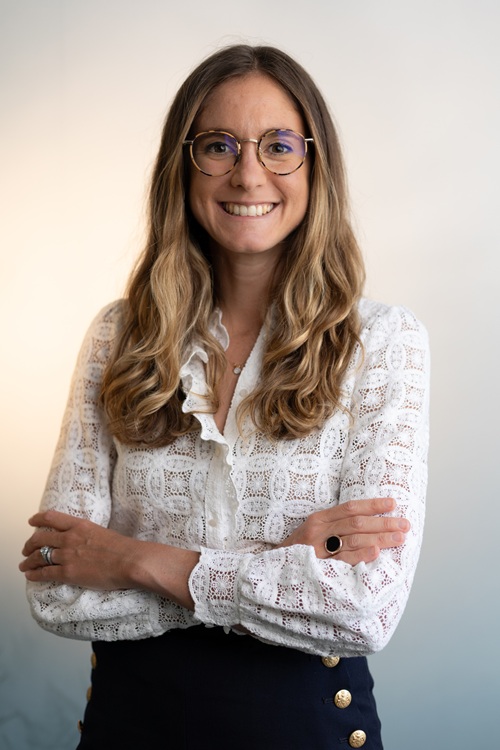
Partech's Alison Imbert on shifting seed strategies and taking smarter risks
Alison Imbert shares with Startups Magazine what makes a winning team, how her team is shifting strategies in an unpredictable market, and why she thinks being considerate isn't incompatible with being a top VC.
 What’s your best investment and what made you back them?
What’s your best investment and what made you back them?
It's definitely Pennylane, and it was a collective effort – Romain Lavault, General Partner at Partech, had backed them previously, and we did the investment together. But what struck me immediately was Arthur Waller, the Founder and CEO. He has this ability I've never seen before: he can make accounting (literally one of the most boring topics in tech) crystal clear and genuinely exciting. When he speaks, investors fall in love. Journalists fall in love. Employees fall in love.
The bet was entirely on the team, and it was quite unusual to back seven founders! You’d think that governance would be a nightmare, but it was quite the opposite: having this enlarged founding team gave them the power to move very fast. There were plenty of accounting software companies before that tried and failed. But these guys understood something no one else did, and they had an ambition no one else had. Everyone else tried to be a layer on top of existing solutions. They decided to take down the massive incumbent instead. That level of conviction is rare. The valuation looked expensive at the time, but today it's a regular seed round.
What's the one thing other investors missed about them?
Pennylane made a bold decision early on: hiring accountants internally and starting as a tech-enabled service. The thesis was to put the product team right next to these accountants so they could watch how they used existing tools like Cedig, then rebuild everything from scratch. They had 50 accountants on payroll, a nightmare, right?
Not everyone believed they could transition from a services business to pure software. But they did it in about two years. That was a massive bet, and the ones who saw it early got rewarded. What convinced me was that Arthur had already mapped out the entire product in his head, every workflow, every pain point. He was rebuilding how accountants think as well as building software. That product clarity at seed stage is rare.
What's the biggest lesson you learned from deals that you missed?
One that stays with me is not fully recognising a founder's potential to grow into the CEO role. With Mistral, we passed because they were outstanding researchers, but it was hard for us to picture them as founders at the time. And at such valuation, it wasn’t an easy bet to make. We underestimated their ability to evolve, especially with the calibre of advisors they surrounded themselves with. These weren't just names on a website, but people who rolled up their sleeves and became almost like shadow co-CEOs, bringing obsessive focus on execution.
I also learned to be more careful with reference calls. Sometimes we over-indexed on feedback without accounting for the biases people bring, their own thesis, their particular lens. You need to take those insights with a grain of salt.
How do you balance learning from passes without overcorrecting?
That's the art of it. The temptation after missing something big is to chase similar patterns. We saw this with another deal that felt very opportunistic: founders trying to replicate a winning formula but without the substance. Our reference checks weren't great. This time we listened to our gut and passed, and we were right.
You can't just chase headlines or hot sectors. Independent thinking is at the heart of who we are at Partech, and you have to stick to that even when it's uncomfortable.
Tell me about an investment approach that taught you something valuable about business models.
Early on, I backed a company with a licensing model. They had great technology, strong patents, and a partnership with a major player. On paper, it looked perfect: recurring royalties, capital-efficient scaling.
What I learned is that licensing is incredibly complex. The technology was in a small trial product line, and moving it to main production lines proved far harder than we anticipated. There are so many dependencies outside your control. The business model looked beautiful on paper but the execution was a different story.
Since then, I've passed on several opportunities in different industries with licensing models. It's made me much more careful about capital-light models that depend on partners' priorities aligning with yours over the long term.
You're encouraging the Partech seed team to take more bets. What's driving that?
I've always been against spray-and-pray. We do two to three deals per partner per year, which is very low for seed. I've believed in being incredibly selective. But I'm evolving on this because the market is too unpredictable right now.
With GenAI especially, it's hard to predict who'll win. I've seen stories of founders who seem unlikely on paper (awkward, unconventional, solo founders) who are growing insanely fast and raising massive rounds. At some point, you can't have a perfect crystal ball.
So my thinking is: take more options, double down on your winner, and stay disciplined on liquidity. Don't try to optimise for 50x returns: if you can return your fund and de-risk the line, that might be smarter than gambling on every portfolio company becoming a decacorn.
A lot of investors out there are saying that Europe is catching up to the US. What's your take?
Yes and no. We're catching up, but we still have fundamental challenges. The biggest is liquidity, we need more exits! The second is that it's genuinely harder to sell software in Europe.
Interestingly, if you look at the CROs of major global software companies like Salesforce, or VMWare, many are European. Why? Because selling in Europe is so challenging that if you succeed here, you're stronger than anyone else. US companies specifically recruit European CROs because of this. That's great for those individuals, but it shows how tough the environment is for startups.
Most successful European software companies end up selling primarily to the US. Pigment is a good example, most revenue comes from America. Pennylane is an exception because accounting is country-specific. We're improving, but I don't think we'll catch the US on unicorns and decacorns in the near term.
Which sector do you think is overvalued, and which is undervalued?
GenAI foundation models look overvalued to me. You need so much capital that valuations start at insane levels, and there's always this question: will models become commoditised? Can European players really catch up to the US? I truly hope so, particularly for Mistral.
For undervalued: traditional SaaS companies that use GenAI to build faster but don't have AI as the core product. In the past, building certain types of software might have taken five years to get the first product to market, making it unbankable. Now it takes two years thanks to AI development tools, so suddenly it's viable for VC.
I recently invested in exactly this type of company (pure software adjacent to the accounting space) and we're paying about three times less than comparable GenAI companies. The question is whether growth funds will appreciate this category or only chase "GenAI by design" companies.
What advice would you give founders raising today versus 2021?
Don't optimise too much for valuation. I recently spoke with a founder wanting to raise at €30 million pre-money with very little built. That valuation puts you on a path where if you don't hit aggressive metrics at Series A, you're in trouble.
Think longer-term about your equity journey. Being more realistic on valuation gives you time to iterate, find your market, find your niche. You have no right to fail when you raise at €30 million plus.
Also, be thoughtful about who you take money from at seed. Those mega-funds that occasionally do seed deals, it's not really their core business. The challenge is if they don't do your Series A, it can send a negative signal to the market. It's super binary: they either double down or you're done. Better to work with funds where seed is their bread and butter.
What’s your due diligence like?
It’s very thorough. We spend a lot of time, usually two weeks, not two days, trying to understand what really drives founders. At the beginning, everyone says they love the mission. But I push deeper: when did you discover this sector? Why do you want to spend ten years of your life on this? Why build a company specifically?
The resilience question is huge. There's no company where everything is smooth. The best founders have extraordinary determination. To test this, I try to understand their intrinsic motivations. Are they building because founding a company has status, or because they have this flame in them where getting a door slammed isn't discouraging, they'll just find another way in?
For second-time founders especially, I need to understand: are you building again to get a decent exit and stop, or to build something truly massive? And with co-founder teams, I'll have these conversations separately to make sure everyone's aligned. I've seen companies where co-founders disagreed on exit appetite and hadn't discussed it, that's dangerous.
What's the toughest question you ask founders?
I'll be direct about exit scenarios. I'll take the actual numbers of a specific deal and ask: if you get an offer for, say, €20 million personally based on the current valuation, do you take it? I only ask this in person because I want to see their eyes, their reaction.
With co-founder teams, I sometimes ask separately to see if they're aligned. I'll even call out if I sense one might answer differently than another: "Have you two talked about this? Because it matters."
Another challenging area is understanding their risk tolerance. It's not the same situation when someone comes from a wealthy family with a financial safety net versus someone who has nothing to fall back on. I try to understand: are you genuinely taking risks here, or is this somewhat of an experiment? These are personal questions, but they matter for long-term commitment.
What's your biggest red flag in founders?
Arrogance is my dealbreaker. Life's too short to work with people who can't take feedback or be challenged. When you invest, you spend years working closely with these people. Trust and rapport matter enormously to me.
Now, there's a big difference between arrogance and being tough or pushy. Some of my best founders are incredibly persistent: you close the door, they come through the window. They'll negotiate hard on every term. But they're not arrogant. They're defending their position, optimising for what's best for the company, and they can still listen and be challenged. That's completely different.
To be totally honest, I might be wrong about this sometimes – there are excellent companies with founders I'd personally struggle to work with. But this is my filter, and my partners at Partech know and respect it.
For more startup news, check out the other articles on the website, and subscribe to the magazine for free. Listen to The Cereal Entrepreneur podcast for more interviews with entrepreneurs and big-hitters in the startup ecosystem.

